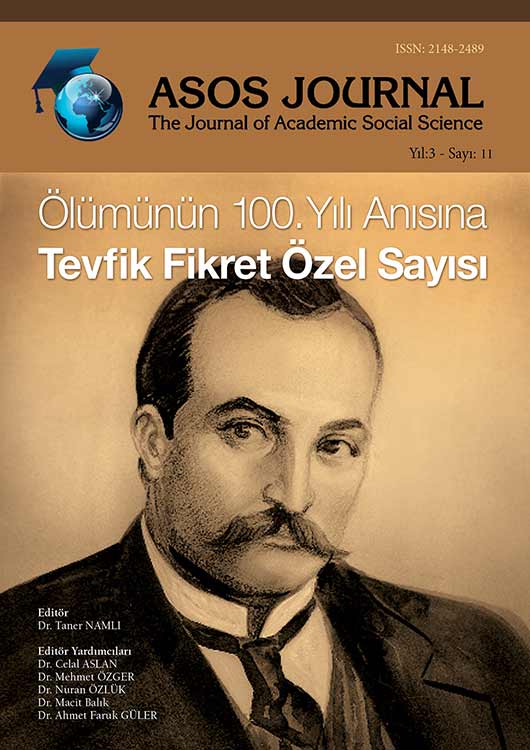Author :
Abstract
Ütopya kavramı akademik çalışmalarda uzun zaman ele alınmış, çeşitli görüşler ışığında incelenmeye tabi tutulmuştur. Kavramın ilk olarak kim tarafından kullanıldığı, kelimenin nasıl türetildiği ve hangi anlamlarda kullanıldığı konusunda değişik görüşler bulunmaktadır. Ütopyalar, insanların özgür, mutlu ve rahat yaşama özlemlerinin ürünleridir. İnsanın var olduğu ilk zamanlardan itibaren hep daha iyiye ve güzele olan meyli, sınır tanımayan düş gücü ile birleşince hayali yerler, hayali ülkeler denilen cennet mekân tasavvurları ortaya çıkmıştır. Ütopya, memnun olunmayan yaşam şartlarına alternatif çözüm sunan bir kavramdır. Servet-i Fünun döneminde baskı, gözetlenme, jurnallenme gibi olaylar o dönemde yaşayan birçok yazarı etkilediği gibi Tevfik Fikret üzerinde de derin etkiler yaratmıştır. Tevfik Fikret ve arkadaşları memnun olmadıkları şartlardan ve mekândan kurtulmak, üzerlerindeki siyasi baskının ağırlığını omuzlarından atmak için kaçmayı ve Yeni Zelanda’da yepyeni bir gökyüzünün altı
Keywords
Abstract
The concept of utopia has been discussed so many times and studied in the light of various perspectives. There are multifarious views about by whom the concept was coined, where it derived, and in what meanings it has been used. Utopias are acknowledged to be the outcomes of people’s longing for a free, happy and peaceful life. Throughout the human history, mankind’s desire for a better lifestyle, together with his unlimited power of imagination, has led to the rise of the fictional countries and paradises. Utopias offer alternatives to the discontentment with the circumstances. In the period of Servet-i Fünun (Wealth of Sciences), the incidents of oppression, espionage and denouncement deeply affected Tevfik Fikret just like many other writers of the period. In order to get rid of the unsatisfactory circumstances and of the political suppression, Tevfik Fikret and his fellows dreamed of escaping to New Zealand and of embracing bright days there. It is clearly possible to see that utop





